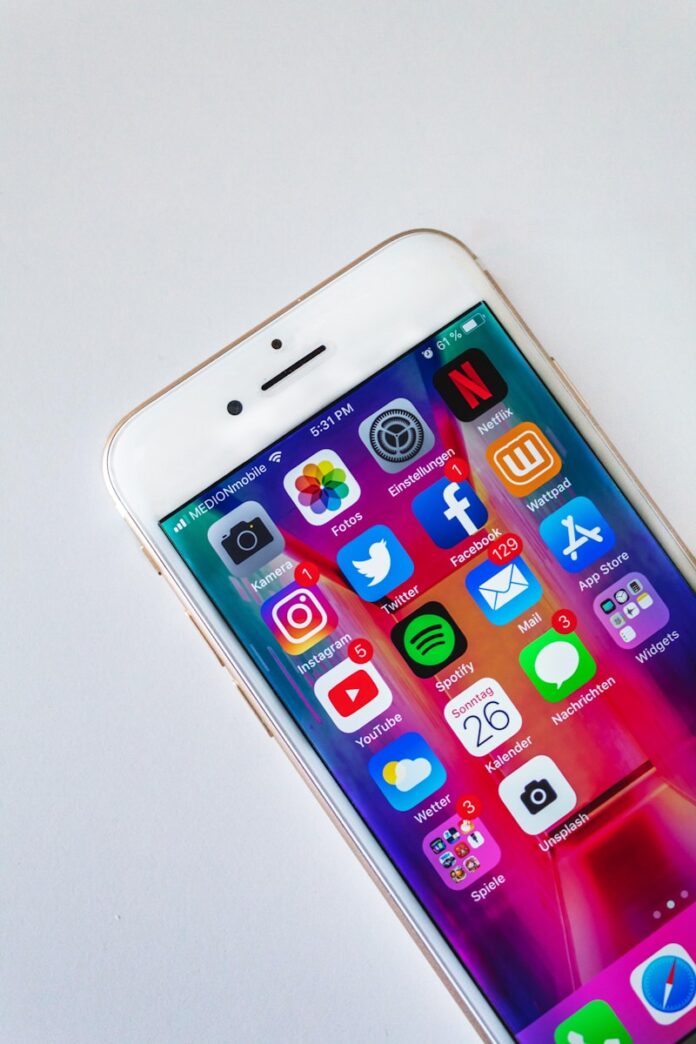Table of Contents
- Introduction
- The Emergence of Social Networks
- The Importance of Understanding Social Networks
- Historical Context
- The Birth of Social Networks
- Evolution Over Time
- Types of Social Networks
- General Social Networks
- Professional Networks
- Niche Networks
- Interest-Based Networks
- Impact on Communication
- Changes in Personal Communication
- Influence on Professional Communication
- Global Connectivity
- Influence on Society
- Social Movements
- Political Campaigns
- Cultural Exchange
- Economic Impact
- Business Marketing
- E-commerce Growth
- Job Market Transformation
- Psychological Effects
- Mental Health Implications
- Addiction and Overuse
- Positive Psychological Benefits
- Privacy and Security Concerns
- Data Privacy Issues
- Cybersecurity Threats
- User Safety Measures
- Social Networks and Education
- E-learning Platforms
- Educational Communities
- Impact on Learning and Teaching
- Future Trends in Social Networks
- AI and Machine Learning
- Virtual and Augmented Reality
- Blockchain Technology
- Conclusion
- Recap of Key Points
- The Future of Social Networks
Introduction
The Emergence of Social Networks
Social networks have revolutionized the way we communicate, share information, and interact with one another. From the early days of platforms like Friendster and MySpace to today’s giants such as Facebook, Twitter, and Instagram, social networks have become an integral part of our daily lives. Their influence spans across personal, professional, and societal lights, making them a powerful force in shaping modern life.
The Importance of Understanding Social Networks
Understanding the impact of social networks is crucial as they continue to evolve and integrate more deeply into our lives. This comprehensive guide explores the various ways social networks influence our communication, society, economy, psychology, and education. By examining these aspects, we can better navigate the digital landscape and leverage social networks for positive outcomes.
Historical Context
The Birth of Social Networks
The concept of social networks dates back to the late 1990s when the internet became more accessible to the general public. Platforms like Six Degrees (1997) allowed users to create profiles and connect with friends, laying the groundwork for future social networks. However, it was the launch of MySpace in 2003 and Facebook in 2004 that truly popularized social networking, transforming it into a global phenomenon.
Evolution Over Time
Social networks have evolved significantly over the past two decades. Initially focused on connecting friends and family, these platforms have expanded to include professional networking, content sharing, and community building. Features such as news feeds, photo and video sharing, live streaming, and messaging have enhanced user engagement and interaction. The rise of mobile technology further propelled social networks, making them accessible anytime, anywhere.
Types of Social Networks
General Social Networks
General social networks like Facebook, Twitter, and Instagram cater to a broad audience, offering a wide range of features for personal and public communication. These platforms allow users to share updates, photos, videos, and articles, engage in discussions, and follow various content creators and brands.
Professional Networks
Professional networks such as LinkedIn focus on career-oriented networking. They provide tools for job searching, recruiting, professional development, and industry-specific content sharing. LinkedIn has become an essential platform for business professionals to connect, collaborate, and advance their careers.
Niche Networks
Niche social networks target specific interests or demographics. Examples include Goodreads for book lovers, Strava for athletes, and Behance for creative professionals. These platforms offer tailored features and content, fostering a sense of community among like-minded individuals.
Interest-Based Networks
Interest-based networks revolve around specific hobbies, passions, or activities. Platforms like Reddit and Pinterest allow users to explore and share content related to their interests, join communities, and participate in discussions. These networks provide a focused environment for users to connect and engage over shared interests.
Impact on Communication
Changes in Personal Communication
Social networks have transformed personal communication by making it instant and global. People can now stay in touch with friends and family regardless of geographic distance, share life updates in real-time, and participate in virtual communities. This has strengthened relationships and created new forms of social interaction.
Influence on Professional Communication
In the professional light, social networks have facilitated networking, knowledge sharing, and collaboration. Platforms like LinkedIn enable professionals to build their personal brands, connect with industry peers, and access job opportunities. Social networks have also become essential tools for businesses to communicate with their customers and stakeholders.
Global Connectivity
Social networks have bridged cultural and geographic divides, fostering global connectivity. They enable users to engage with diverse perspectives, cultures, and ideas, promoting cross-cultural understanding and collaboration. This global reach has made social networks powerful platforms for advocacy, education, and social change.
Influence on Society
Social Movements
Social networks have played a crucial role in organizing and amplifying social movements. Platforms like Twitter and Facebook have been instrumental in mobilizing protests, raising awareness about social issues, and connecting activists. Movements such as #BlackLivesMatter and #MeToo have gained global traction through social media, highlighting the power of these networks in driving societal change.
Political Campaigns
Political campaigns have increasingly relied on social networks to reach voters, share messages, and engage with the electorate. Social media allows politicians to connect directly with constituents, bypassing traditional media channels. However, this also raises concerns about misinformation, echo chambers, and the impact of social media on political discourse.
Cultural Exchange
Social networks facilitate cultural exchange by exposing users to diverse cultures, traditions, and viewpoints. They provide platforms for sharing art, music, literature, and other cultural artifacts, fostering a global appreciation for cultural diversity. This exchange enriches users’ understanding of the world and promotes cultural inclusivity.
Economic Impact
Business Marketing
Businesses leverage social networks for marketing, brand building, and customer engagement. Social media advertising allows companies to target specific demographics, track campaign performance, and engage with customers in real-time. Platforms like Instagram and Facebook have become crucial for influencer marketing, where influencers promote products and services to their followers.
E-commerce Growth
Social networks have fueled the growth of e-commerce by integrating shopping features and facilitating seamless transactions. Platforms like Instagram Shopping and Facebook Marketplace allow users to discover and purchase products directly within the app. This integration has created new opportunities for businesses to reach and convert customers.
Job Market Transformation
Social networks have transformed the job market by streamlining the job search and recruitment process. Platforms like LinkedIn provide tools for job seekers to showcase their skills, connect with recruiters, and access job listings. Recruiters use these networks to identify and evaluate potential candidates, making the hiring process more efficient.
Psychological Effects
Mental Health Implications
The impact of social networks on mental health is a topic of ongoing debate. On one hand, social media can provide support, foster connections, and promote positive mental health. On the other hand, it can contribute to anxiety, depression, and feelings of inadequacy, particularly when users compare themselves to others. It’s important for users to be mindful of their social media use and seek balance.
Addiction and Overuse
Social networks are designed to be engaging, which can lead to overuse and addiction. Features like endless scrolling, notifications, and likes can create a dopamine-driven feedback loop, making it difficult for users to disengage. Awareness and self-regulation are key to preventing social media addiction.
Positive Psychological Benefits
Despite potential drawbacks, social networks can also offer positive psychological benefits. They provide platforms for self-expression, social support, and community building. Engaging with positive content and supportive communities can enhance well-being and foster a sense of belonging.
Privacy and Security Concerns
Data Privacy Issues
The vast amount of personal data shared on social networks raises significant privacy concerns. Users often unknowingly share sensitive information that can be exploited by malicious actors. Social networks must prioritize data privacy and implement robust security measures to protect user information.
Cybersecurity Threats
Social networks are common targets for cyberattacks, including phishing, hacking, and identity theft. Users must be vigilant about their online security, using strong passwords, enabling two-factor authentication, and being cautious of suspicious links and messages.
User Safety Measures
To enhance user safety, social networks implement various measures such as content moderation, reporting mechanisms, and user education. These measures aim to protect users from harassment, abuse, and harmful content, creating a safer online environment.
Social Networks and Education
E-learning Platforms
Social networks have revolutionized education by providing platforms for e-learning and online courses. Platforms like Coursera, edX, and LinkedIn Learning offer access to a wide range of courses and educational resources, making education more accessible and flexible.
Educational Communities
Social networks foster educational communities where students and educators can connect, collaborate, and share knowledge. Groups and forums on platforms like Facebook and Reddit provide spaces for discussing academic topics, seeking help, and sharing resources.
Impact on Learning and Teaching
The integration of social networks in education has transformed traditional learning and teaching methods. Social media tools enhance collaborative learning, encourage student engagement, and provide platforms for sharing educational content. Educators can use social networks to connect with students, share resources, and create interactive learning experiences. However, it’s essential to balance the use of social media with traditional educational methods to ensure comprehensive learning outcomes.
Future Trends in Social Networks
AI and Machine Learning
Artificial intelligence (AI) and machine learning are poised to revolutionize social networks. These technologies can enhance user experiences by personalizing content, improving recommendations, and automating moderation. AI-driven chatbots can provide customer service and support, while machine learning algorithms can detect and prevent harmful content.
Virtual and Augmented Reality
Virtual reality (VR) and augmented reality (AR) are set to transform social networks by creating immersive and interactive experiences. Platforms like Facebook Horizon and Snapchat’s AR filters are early examples of how VR and AR can enhance social interactions, gaming, and content creation. These technologies offer new possibilities for social networking, from virtual meetups to augmented reality shopping.
Blockchain Technology
Blockchain technology promises to address privacy and security concerns on social networks. Decentralized platforms can give users greater control over their data, reduce the risk of data breaches, and increase transparency. Blockchain can also enable new models of social interaction and content monetization, fostering a more user-centric social networking environment.
Conclusion
Recap of Key Points
Social networks have profoundly influenced various aspects of our lives, from personal communication to professional networking, and from societal movements to economic activities. They have transformed how we connect, share, and engage with the world, bringing both opportunities and challenges. Understanding these impacts is crucial for navigating the digital landscape effectively.
The Future of Social Networks
As social networks continue to evolve, they will become even more integrated into our daily lives. Emerging technologies like AI, VR, AR, and blockchain will shape the future of social networking, offering new possibilities for interaction and engagement. It is essential to remain mindful of the potential risks and benefits, striving to use social networks responsibly and positively.


